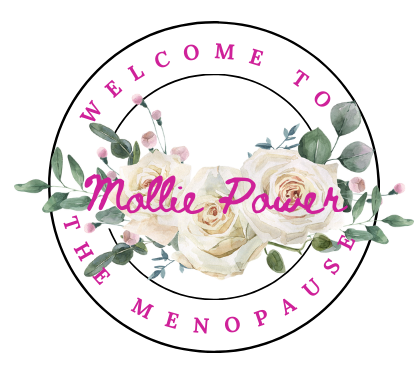
Menopause Together: A Guide to Open Communication with Your Partner
When we talk about menopause, we are referring to a significant chapter in a woman’s life that marks the end of her reproductive years. But this is not just about a biological transition; it is also about the shifts in daily living and relationships that go with it. I am here to help you with precisely that—navigating this journey with your partner in a way that fosters understanding and closeness. So, let us get a solid footing on what we mean by menopause. It is defined by the natural cessation of menstruation, occurring in women between the ages of 45 and 55.
It is crucial for both partners to have a mutual understanding of what menopause entails. This is not merely a list of symptoms; rather, it is recognising a transition that affects both physical and emotional health. Common experiences include hot flashes, night sweats, sleep disturbances, and a variety of mood shifts. But each woman’s menopause journey is as unique as her fingerprint, with varying intensities and combinations of symptoms.
Your first attempt at discussing menopause with your partner does not need to be your last. In fact, it should be the beginning of an ongoing conversation. Embracing this as a joint experience can be incredibly empowering. Educating yourselves about the menopause timeline—from perimenopause, the time leading up to menopause, to post menopause after periods have stopped for a full year—can help set expectations and pave the way for empathy and support.
Choose something that resonates with you and your partner when it comes to education; it could be scientific articles, personal stories, or even documentaries. Arm yourselves with knowledge because understanding is the bedrock of support. And remember, menopause is not a solo journey—it is another chapter in your shared story. Now, as we move forward, I am going to guide you on how to open this dialogue effectively. It is not just about talking; it is also about choosing the right environment and mindset for these important conversations. And that is going to include setting the proper stage for open and honest communication.
Fostering Open Dialogue: Setting the Stage for Support
I am going to tell you how to open the lines of communication. First off, timing is everything. You want to pick a moment when both you and your partner are relaxed and not preoccupied with the distractions of your daily grind. This is not just about finding the right time; it is also about ensuring you will not be interrupted. Having this conversation over a laid-back dinner at home or during a leisurely weekend morning could be ideal.
Now, let us talk about the setting. You need to create an environment where both of you feel comfortable enough to share openly and honestly. Think of it this way: the ambiance you choose is as important as the conversation itself. It could mean the difference between a constructive dialogue and a conversation that goes nowhere.
Remember, open and effective communication is a two-way street. It is not just about voicing your own experiences with menopause; it is equally about listening to your partner’s thoughts and concerns. The goal here is to foster a dynamic where you are both comfortable to share and supportive of each other. My advice? Practice active listening. When your partner is speaking, really focus on what they are saying, rather than just waiting for your turn to talk.
Setting the stage for support through conversation can naturally lead into the next section, where understanding becomes the focal point. By laying down the groundwork of mutual respect and attentiveness, you are going to create the perfect springboard into navigating the emotional nuances of menopause together.
Emotional Synergy: Navigating the Emotional Roller Coaster
If you are ready to deepen your understanding of menopause’s emotional landscape, then this section is for you. Menopause is not just a series of physical changes; it can be an emotional roller coaster, and your partner needs to know what that might mean for both of you.
The hormonal fluctuations that go with menopause can bring a cascade of emotions. Educating your partner about these can invite empathy and support. Mood swings, irritability, and even episodes of anxiety or depression are common. It is important that your partner realises these emotional shifts are a part of menopause, and not a reflection of your feelings towards them or the relationship.
Facilitating an environment where openness is key means nurturing a space without judgment. Encourage your partner to share their feelings too. If they are feeling side lined, confused, or concerned, it is crucial they feel comfortable expressing this. You are walking this path together, and their emotions are just as valid.
Remember that patience and understanding go a long way. Sometimes, you might just need a listening ear, other times, a conversation to navigate the emotional changes together. And do not worry if you do not get it right initially; there’s room for growth and learning in every conversation.
Adapting to New Intimacies: Physical Changes and Togetherness

I am going to walk you through how physical changes can affect intimacy and how you can adapt together. It is not just about coping with symptoms; it is about rediscovering ways to connect on a deeper level.
Remember, communicating your needs during menopause is essential. If you are experiencing symptoms that affect your comfort or desire for intimacy, bring these up openly. Choose something that resonates with you when discussing these changes, whether that is a direct conversation or writing them down to share with your partner.
You and your partner can explore new paths to intimacy. This might include introducing new activities or finding different ways to be close that are not solely focused on physical interaction. Do not get too hung up on how things ‘used to be,’ and instead, embrace this opportunity to evolve together.
If you want to alleviate menopausal symptoms and enhance your quality of life, consider lifestyle modifications like diet and exercise, and do not hesitate to consult healthcare professionals for personalised advice. Include your partner in these decisions; their support can make all the difference.
Your first attempt at adjusting to these changes does not need to be your last. You can always adjust your approach down the road. The aim is to keep an open line of communication and continue to support one another throughout this transition.
Your Story Matters! Share Your Experience
Dear Welcome To The Menopause family,
We’re all about sharing stories here, and we want to hear yours! After diving into our latest post, we’re eager to know how it resonated with you. Did you relate to a particular point? Maybe you have your unique take on the topic?
Let’s make this space a hub for diverse experiences. Drop a comment below and let’s spark a conversation. Your voice matters, and we can’t wait to read your insights!
Cheers to sharing and connecting!
